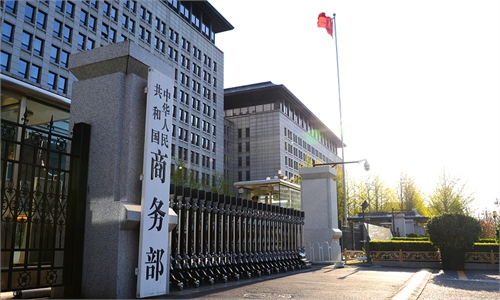
Illustration: Tang Tengfei/GT
As a key focus of the UK's trade plan post-Brexit, the Comprehensive and Progressive Agreement for Trans-Pacific Partnership (CPTPP) appears to gain rising prestige among major economies around the world, however relevant governments need to be careful to keep it open, transparent, and avoid geopolitical posturing.UK International Trade Secretary Liz Truss is scheduled to speak to ministers in Japan and New Zealand on Monday to formally apply to join the CPTPP, with negotiations expected to start this spring, according to a UK government press release.
Britain's interest in the CPTPP is known to all. The country's economy is under growing pressure to engage with more regional free trade blocs and to rebuild its own trade network after leaving the EU, with the CPTPP representing the direction of high-level free trade development in the Asia-Pacific region where some of the world's fastest growing markets are located.
In fact, the appeal of the CPTPP is not just limited to the UK. China also holds an open and proactive attitude toward joining the CPTPP, and has expressed its willingness to actively consider joining the regional trade bloc on several occasions. In January, South Korea also said it plans to actively consider joining the CPTPP.
These countries' displays of interest in the CPTPP also manifest the trade bloc's growing attractiveness. As the chair for the CPTPP this year, Japan also wants to expand the trade pact by adding new members, Japanese Prime Minister Yoshihide Suga once said.
While the CPTPP has always been touted as a higher standard free trade agreement with high level free trade rules, it is undeniable that the current trade pact is a far cry from the original Trans-Pacific Partnership (TPP), which never came into effect due to the withdrawal of the previous US administration in terms of economic and trade volume. Previously, members of the TPP were supposed to represent 40 percent of the world economy, while the CPTPP, without the US, is equivalent to about 13 percent of global GDP and around 14 percent of world trade.
To a certain extent, it is doubtful how much of a role such a high-standard free trade agreement could play within a relatively limited economic and trade capacity. Thus, a more diversified membership would enhance the economic influence of the CPTPP and open up more market opportunities for existing members.
It should be noted that the CPTPP evolved from the TPP, which deliberately excluded China and was widely seen as a measure to contain China's rise. But since the US exit, the CPTPP has seen its geopolitical significance largely wane, and becomes a free trade bloc with more economical significance.
It is important for the CPTPP not to go back to its previous geopolitical game and set any invisible political threshold for the admission of new members.
The CPTPP is a free trade agreement of great potential for the Asia-Pacific industrial chain. We believe that countries in the region would not like to see the pact fall into a geopolitical pitfall that would only bring uncertainties and disruptions to supply chains and regional trade cooperation. If the CPTPP once again becomes politically-oriented, its economic prominence and appeal will weaken.


